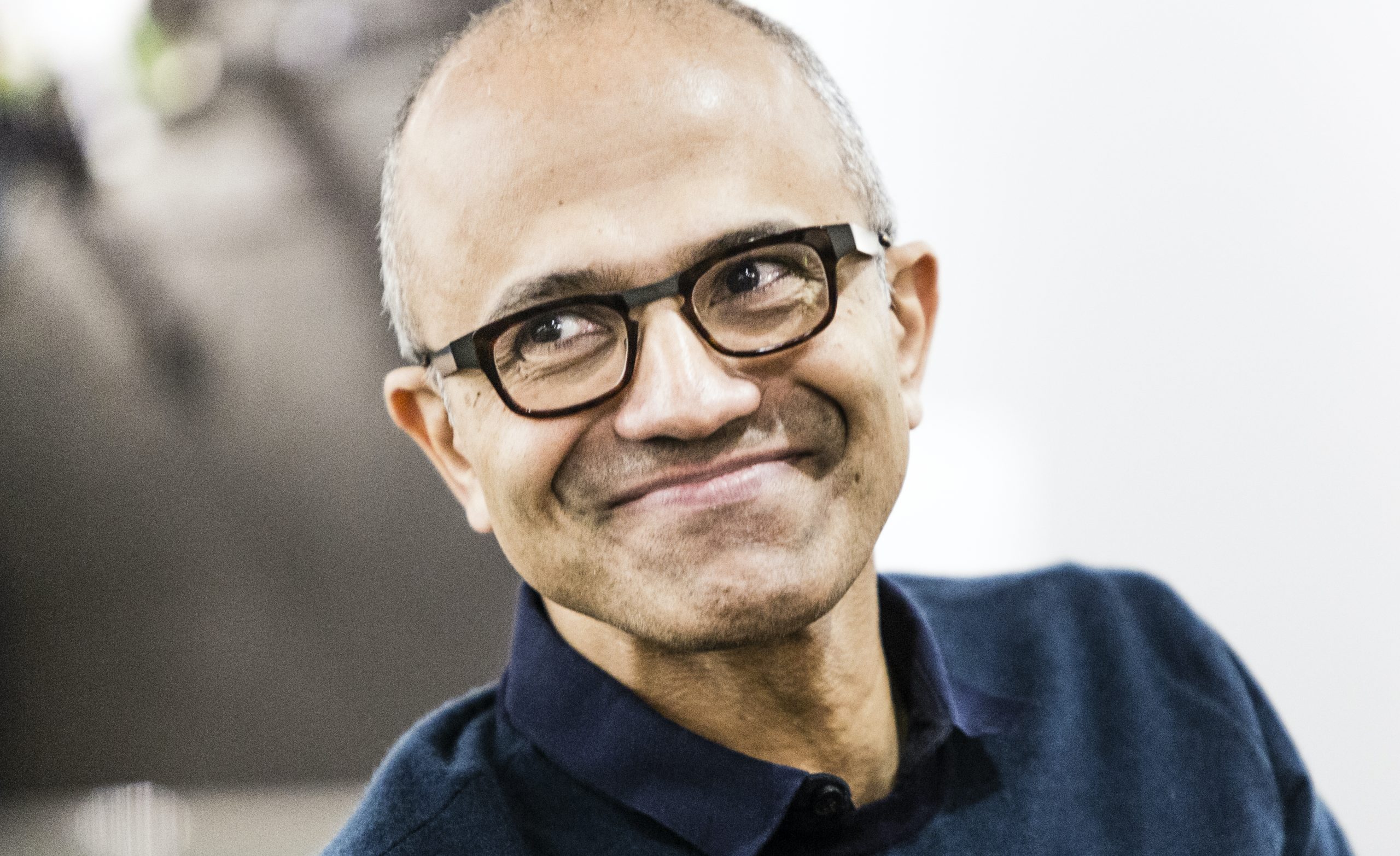Microsoft CEO Gets $30M Raise While Laying Off Thousands and Facing Cyber Scandal!
Satya Nadella, the CEO of Microsoft, is no stranger to large paydays, but his most recent compensation package has raised eyebrows across the tech world. Nadella has been awarded a $30 million raise for the fiscal year 2024, pushing his total earnings to an impressive $71 million, a 63% increase compared to last year. This sizable bump in pay is largely driven by stock awards, which surged from $39 million in 2023 to $71 million this year. However, this pay increase comes amid a series of layoffs at the company and following high-profile cybersecurity breaches, leading many to question whether the reward is deserved in the face of these challenges.
A Pay Raise Amidst Layoffs
In a year where Microsoft slashed its workforce by nearly 2,500 employees, including mass layoffs in its gaming division following its $69 billion acquisition of Activision Blizzard, Nadella's raise stands out. In the third quarter alone, Microsoft let go of 1,900 employees from its gaming operations, and another 650 jobs were cut later on. These actions, which followed a period of corporate restructuring, included significant cuts in Microsoft's gaming studios, despite the company’s overall success under Nadella's leadership.
The question arises: can a massive pay increase for a CEO be justified when thousands of workers are being laid off? In contrast to the layoffs, Microsoft’s stock has seen a 16% increase this year, albeit still lagging behind the S&P 500’s 23% gain. While investors have seen solid returns, the optics of rewarding a CEO at this scale while shedding jobs is controversial, especially as Nadella’s compensation package appears to be disconnected from the realities faced by everyday employees.
Cybersecurity Scandals and Executive Accountability
In addition to the layoffs, Microsoft has found itself embroiled in a series of cybersecurity issues. This year, the company was targeted by foreign state-sponsored hackers, including Russian and Chinese cybercriminals. In one high-profile breach, Chinese hackers were able to infiltrate Microsoft’s systems and access over 60,000 emails from the U.S. State Department. This attack was part of a broader campaign that included a series of espionage activities, which also targeted emails of senior Microsoft staff by Russian cybercriminals.
Given Microsoft's crucial role as a contractor to the U.S. government, the hacks raised alarms regarding the company’s ability to protect sensitive data and communications. Microsoft has been a key player in U.S. government IT infrastructure, providing software solutions to a vast array of federal agencies. Its failure to secure its systems has not gone unnoticed, and lawmakers have raised concerns about the national security implications of these breaches.
In response to these incidents, Nadella voluntarily agreed to reduce his pay by $5.5 million, primarily by cutting his cash incentives. His compensation was initially set to include a cash bonus tied to revenue and operating income targets, but following the security lapses, he requested the company’s board to adjust the incentive to reflect his personal accountability for the breaches. The cash incentive, originally set at $10.66 million, was reduced to $5.2 million, signaling that Nadella takes responsibility for the company's failure to adequately defend against cyberattacks.
Microsoft’s board accepted Nadella’s request and noted in an SEC filing that the pay reduction was a reflection of his commitment to improving security within the company. Despite the breaches, Microsoft continues to perform well financially, with the company’s market capitalization nearing $3.2 trillion, making it one of the most valuable companies in the world.
Performance and Investor Confidence
Nadella’s leadership has undoubtedly paid off for investors, even as the company grapples with the cybersecurity fallout. Microsoft's stock price has risen more than 16% year-to-date, and the company remains a leader in the tech industry, particularly in cloud computing and artificial intelligence. Despite the setbacks, analysts continue to be optimistic about Microsoft’s prospects, with expected earnings growth of 3% in the upcoming quarterly report, along with a 14% rise in revenue.
However, Microsoft’s relatively modest stock performance compared to the broader market raises questions about whether the company is fully capitalizing on its growth potential. Despite the increase in Nadella’s compensation, some critics believe the company’s stock remains overpriced, especially given its reliance on its existing technologies and the looming competition in areas such as cloud services and AI.
Cybersecurity Strategy and Internal Shifts
In light of the breaches, Nadella has made cybersecurity a top priority at Microsoft. In May, he sent a memo to employees, telling them to prioritize security above all else. In the memo, he stressed that if employees were faced with the choice between security and another priority, security must come first. “If you’re faced with the tradeoff between security and another priority, your answer is clear: Do security,” Nadella wrote, signaling the company’s shift towards placing greater emphasis on protecting its systems and infrastructure from external threats.
Microsoft has since taken steps to bolster its cybersecurity defenses, promising to improve its efforts in the wake of these attacks. The company is focusing on ensuring that its employees and its systems are better equipped to prevent such breaches in the future. However, the attacks have raised questions about the overall efficacy of Microsoft’s security practices, especially when dealing with highly sophisticated foreign actors.
Ethical Concerns and the Broader Tech Landscape
Nadella’s pay raise and the broader questions surrounding Microsoft’s approach to layoffs, cybersecurity, and executive compensation are part of a larger debate in the tech world. Many tech executives have faced scrutiny for their lavish pay packages, particularly during times of company-wide cost-cutting measures. The ethical implications of compensating executives so handsomely while laying off workers or dealing with failures in core areas like cybersecurity are increasingly drawing criticism from labor advocates, consumers, and even lawmakers.
Microsoft’s actions also fit into a broader trend of increasing executive pay amidst the consolidation of power within the tech industry. As large tech companies like Microsoft, Apple, and Google dominate key sectors of the global economy, executives continue to receive substantial pay raises, even as the companies themselves face increasing pressure to maintain security, manage global supply chains, and stay competitive in rapidly evolving markets. Nadella’s pay raise, while earned based on Microsoft’s overall performance, also highlights the challenges tech companies face in balancing their financial success with ethical considerations around employee well-being and corporate responsibility.
Related: Microsoft CEO Satya Nadella Requests Pay Cut Amid Security Breaches
Navigating Challenges with Long-Term Vision
Satya Nadella’s $30 million raise, amidst layoffs and security breaches, underscores the complexity of leadership at a major tech company in the modern age. While Microsoft’s financial success under his leadership is clear, the ethical questions surrounding his compensation and the company’s handling of its workforce and cybersecurity concerns will likely continue to spark debate.
Nadella’s willingness to take responsibility for the security lapses and his commitment to improving the company’s cybersecurity infrastructure show a level of self-awareness that many leaders lack. However, as the tech industry faces growing scrutiny from lawmakers, consumers, and employees, it remains to be seen whether this self-correction will be enough to mitigate the broader concerns about the direction of the company.
Ultimately, Microsoft’s ability to navigate its challenges, including its cybersecurity issues, will likely determine how Nadella’s compensation and leadership are perceived in the long run. If Microsoft can use this experience to strengthen its security posture and continue its innovation in cloud computing, artificial intelligence, and other areas, Nadella’s leadership may well prove to be worth the significant pay raise—though the public’s eye will remain keenly focused on how the company balances its growth with its responsibility to workers and the global digital infrastructure.











